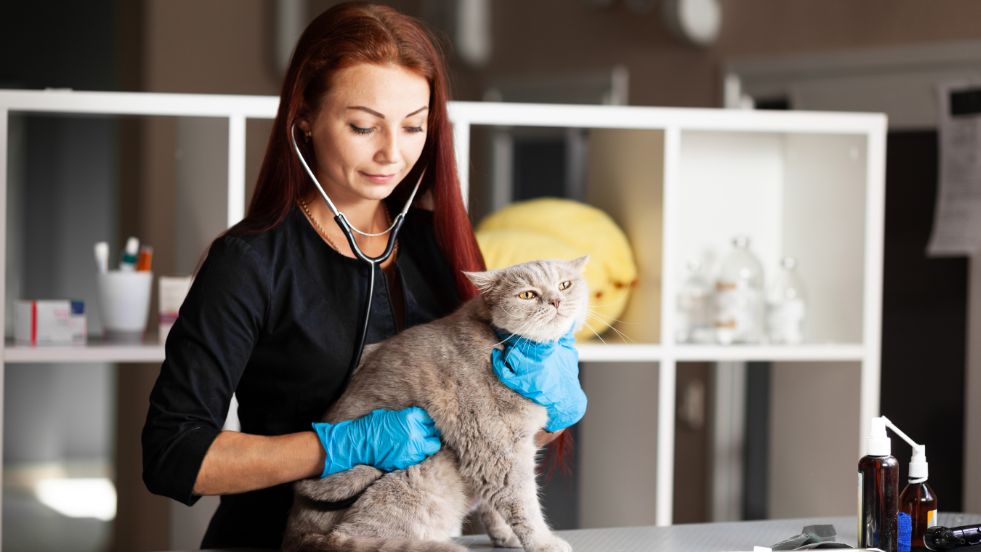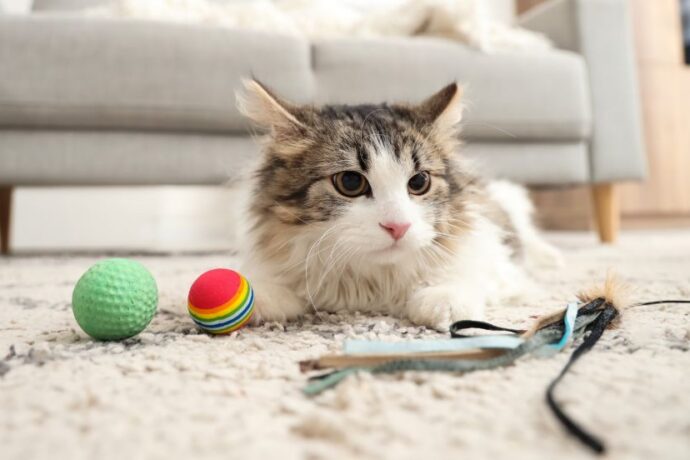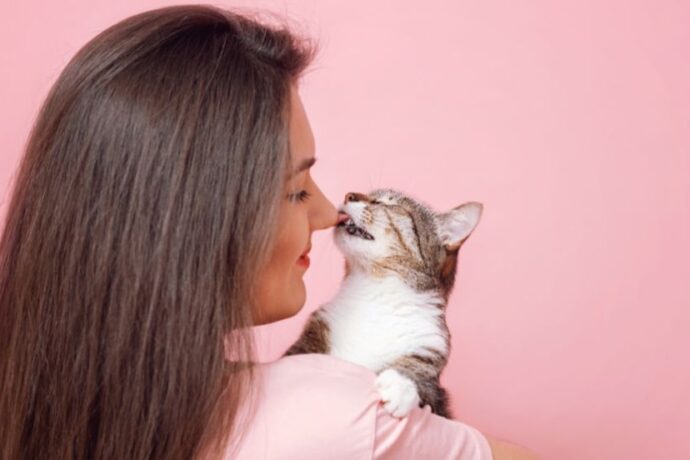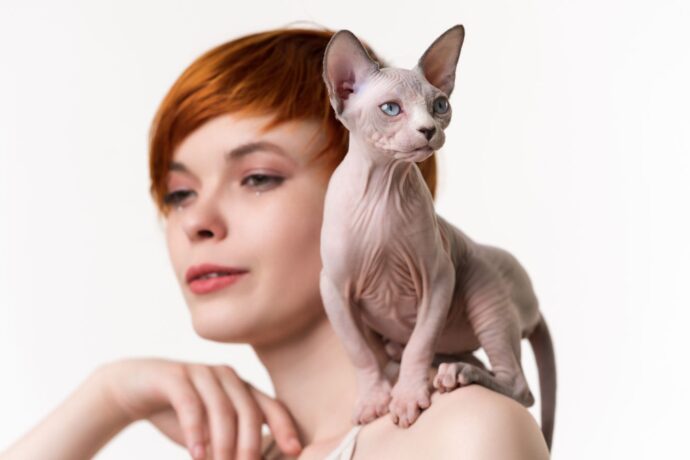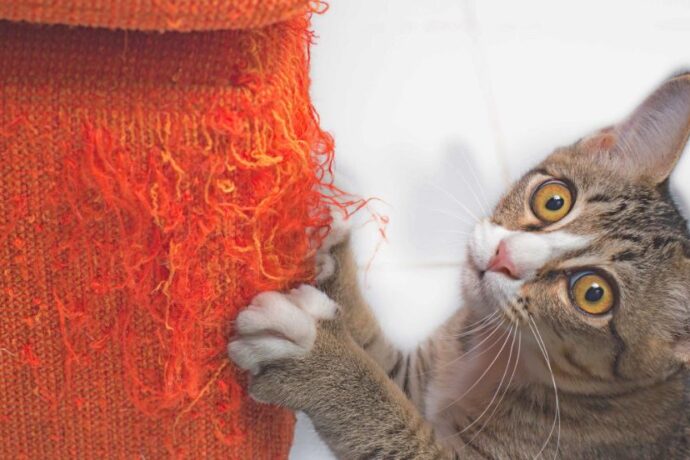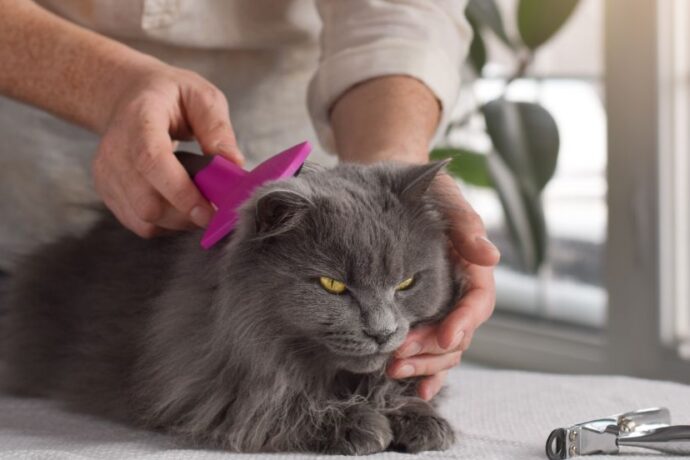Every cat owner wants their feline companion to stay happy and healthy. While veterinary care is always essential for serious conditions, many everyday cat problems—like hairballs, minor digestive upsets, or dry skin—can often be supported with natural remedies. Gentle, home-based solutions can complement traditional treatments, reduce reliance on harsh chemicals, and help your cat feel more comfortable.
But what natural remedies are safe for cats, and which ones truly work? Let’s explore some evidence-based, vet-approved approaches that may help with common feline issues.
7 Natural Remedies Every Cat Owner Should Know
1. Pumpkin for Digestive Health
Pumpkin is one of the most trusted natural remedies for feline digestion. Rich in soluble fiber, it helps add bulk to stool, making it useful for both diarrhea and constipation. The fiber content slows down rapid digestion in cases of loose stool, while also softening hard stool in constipated cats.
- How to use: Offer 1–2 teaspoons of plain canned pumpkin (not pumpkin pie filling) mixed into your cat’s regular food.
- When it helps: Occasional constipation, diarrhea, or hairball prevention.
- Caution: Too much pumpkin can cause loose stools. If diarrhea or constipation persists longer than two days, consult a vet.
2. Coconut Oil for Skin and Coat
Coconut oil contains medium-chain triglycerides (MCTs), which have antimicrobial, antifungal, and moisturizing properties. Some cat owners notice shinier coats, reduced dandruff, and fewer hairballs when adding coconut oil to their cat’s care routine.
- How to use: For topical relief, rub a small amount (pea-sized) on dry patches of skin. For dietary use, start with ¼ teaspoon added to food once a day.
- When it helps: Dry, flaky skin; occasional hairballs; minor irritation.
- Caution: Overuse can lead to greasy fur, digestive upset, or weight gain. Always introduce gradually.
3. Chamomile Tea for Stress Relief
Chamomile is known for its calming properties in humans, and it may also help cats relax in stressful situations. Studies on natural aromatherapy in animals suggest that certain mild scents can reduce stress markers, making chamomile an option for nervous cats (1).
- How to use: Brew chamomile tea, let it cool, and lightly mist it onto your cat’s bedding. Alternatively, place a chamomile sachet near their resting spot.
- When it helps: Travel anxiety, environmental changes, separation anxiety.
- Caution: Never allow your cat to ingest chamomile directly unless approved by your vet, as some forms may be toxic in higher doses.
4. Aloe Vera (with Caution) for Minor Skin Irritation
Aloe vera gel has soothing and anti-inflammatory effects, making it useful for small scratches or itchy spots. However, the outer layer of the aloe plant (latex) contains compounds toxic to cats.
- How to use: Only use cat-safe, veterinary-approved aloe vera gels, applied sparingly to the affected area. Prevent your cat from licking the gel until it’s absorbed.
- When it helps: Mild rashes, bug bites, or irritated skin.
- Caution: Never use raw aloe directly from the plant. Always verify it is free of aloe latex.
5. Oatmeal Baths for Itchy Skin
Oatmeal contains compounds called avenanthramides, which are known for their anti-inflammatory and anti-itch effects. This remedy is particularly useful for cats with dry skin or mild allergies.
- How to use: Grind plain oats into a fine powder and add it to lukewarm bathwater. Gently pour the oatmeal water over your cat’s coat.
- When it helps: Allergic itchiness, mild dermatitis, flaky skin.
- Caution: Not all cats tolerate bathing. If your cat is highly stressed by water, this may not be the best choice.
6. Valerian Root for Anxiety
Valerian root is a natural herb with sedative effects. While it can make humans sleepy, cats often experience a short burst of playfulness followed by calm relaxation. Research in animal behavior has noted valerian’s potential for reducing stress responses.
- How to use: Offer valerian root in a cat toy, sprinkle dried valerian in a safe play area, or use a valerian spray.
- When it helps: Fireworks, vet visits, or other stressful events.
- Caution: Not all cats respond positively, and some may ignore it entirely. Always test small amounts first and avoid overuse.
7. Apple Cider Vinegar for Flea Control (Diluted)
Apple cider vinegar (ACV) has a strong scent and acidity that can help deter fleas, though it won’t kill them outright. It can be used as part of an integrated flea management plan.
- How to use: Mix ACV with equal parts water and spray lightly on your cat’s coat, avoiding eyes and open wounds. You can also dip a comb in the mixture before brushing your cat.
- When it helps: As a natural flea repellent in early infestations.
- Caution: ACV is not a substitute for veterinary flea prevention. Heavy infestations require vet-approved treatments.
What Science Says About Natural Remedies for Cats
While many natural remedies are popular among pet owners, scientific evidence is still developing. For example, a 2018 study in the Journal of Veterinary Science noted that natural plant-based compounds can provide mild antimicrobial or soothing effects, but they should always be seen as supportive rather than curative (2). Veterinary experts emphasize that natural treatments work best for minor issues and should not replace professional care for serious health concerns like infections, chronic disease, or behavioral disorders.
FAQs About Natural Cat Remedies
1. Are natural remedies always safe for cats?
A. Not always. Cats have unique metabolisms, and some substances safe for humans or dogs can be toxic to cats. Always consult a veterinarian before introducing any natural remedy.
2. Can I use essential oils around my cat?
A. Caution is needed. Many essential oils (like tea tree, peppermint, and eucalyptus) are toxic to cats. If you use them in your home, ensure they’re well diluted and your cat can leave the area.
3. When should I see a vet instead of trying home remedies?
A. If your cat shows persistent vomiting, diarrhea, sudden weight loss, breathing difficulties, or behavior changes, skip home remedies and seek veterinary care immediately. Natural solutions are best for mild, everyday issues—not serious health problems.
Final Thoughts:
Natural remedies can be wonderful allies in managing everyday cat problems—from easing stress to supporting digestion. However, the golden rule is moderation and caution. Always introduce new remedies slowly, monitor your cat’s response, and consult with your veterinarian to ensure safety.
Used wisely, these gentle solutions can enhance your cat’s comfort, reduce minor problems, and give you peace of mind as a caring pet parent. Remember: the best approach is a balance between natural care and professional veterinary guidance.
References:
1. Dealing With Stress in Cats
2. Recent Advances in the Discovery of Plant-Derived Antimicrobial Natural Products

